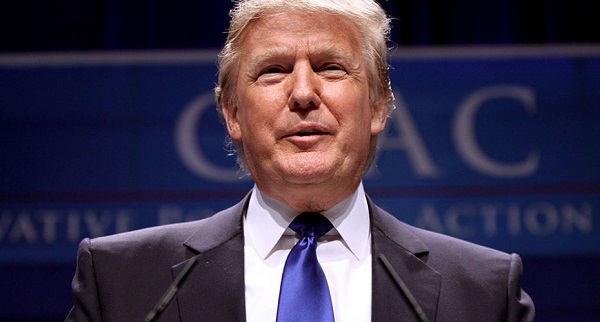US President Donald Trump recently suggested that Ukraine must secure a rare earth minerals deal in order to continue receiving military aid from the United States. This proposal has gained traction, especially among Republican figures, including Senator Lindsey Graham, who called the potential agreement a “game changer” for the Trump administration’s stance on Ukraine. As Washington and Kyiv enter negotiations over the deal, the implications for both countries, as well as global geopolitics, are becoming increasingly clear.
The Significance of Rare Earth Minerals
Rare earth minerals are crucial for various technologies, including military hardware, electronics, and renewable energy. These minerals are vital in the production of weapons systems, electric vehicles, wind turbines, and other high-tech devices. Ukraine, according to Graham, possesses a vast quantity of these resources, which would make the country a valuable asset for the United States, both strategically and economically.
For Ukraine, securing a deal on these minerals could bring in substantial foreign investment and provide long-term economic stability. In return, the United States could gain a reliable source of critical minerals, reducing its dependence on countries like China, which currently dominates the global supply of rare earth elements. The agreement could also enhance Ukraine’s position in the ongoing conflict with Russia by strengthening its economic ties with the West and its military capabilities.
Graham’s Remarks at the Munich Security Conference
Senator Lindsey Graham, speaking at the Munich Security Conference, emphasized the importance of the rare earth minerals deal for the future of US-Ukraine relations. He stated that if the deal goes through, it would be a “nightmare” for Russian President Vladimir Putin because the United States would be defending something of great value. In his remarks, Graham argued that securing Ukraine’s mineral resources would significantly increase US interest in ensuring Ukraine’s defense against Russian aggression.
“Ukraine has trillions of dollars’ worth of minerals,” Graham declared, further stressing that these resources would make Ukraine an even more strategic asset for the United States. He said the deal would show that Ukraine is a “benefit, not a burden” to the West. According to Graham, this would not only strengthen Ukraine’s position in its ongoing conflict with Russia but also solidify its role as a key ally for the US in the region.
Graham’s support for the rare earth minerals deal aligns with his broader pro-Ukraine stance. He has long advocated for stronger US military support for Ukraine, particularly in the form of advanced weaponry such as F-16 fighter jets. In his view, such support would send a clear message to Putin that the West is committed to Ukraine’s defense, regardless of Russia’s opposition.
US Commitment to NATO and Ukraine
Graham also used the Munich Security Conference as a platform to reaffirm the US commitment to NATO, pushing back against recent isolationist sentiments within the country. Despite comments made by US Defense Secretary Pete Hegseth, who has expressed doubts about the US’s role in NATO, Graham made it clear that the Senate remains firmly supportive of the alliance. He rejected the notion that the US should withdraw from NATO, arguing that the alliance remains essential for global security and stability.
“There’s always been an isolationist movement in the United States, but we’ve handled that since NATO’s founding,” Graham said. “NATO is vital to maintaining peace and protecting democratic values across the world.”
In addition to his support for NATO, Graham called for increased military support for Ukraine. He argued that the US should provide more F-16s to Ukraine, not fewer, to strengthen its air defense capabilities. He pointed out that F-16s are manufactured in his home state of South Carolina, underscoring the domestic economic benefits of increasing military aid to Ukraine.
Reflection on 2014 and Calls for Stronger Action
Graham also reflected on the West’s response to Russian aggression in 2014, when Russia annexed Crimea and backed separatist movements in eastern Ukraine. He criticized the hesitation of Western nations, including the US, to take stronger action at that time. According to Graham, the fear of provoking Putin led to weak policies that ultimately encouraged further aggression from Russia.
“We failed in 2014. We should have integrated Ukraine’s economy and strengthened its military, but we feared provoking Putin,” Graham said. He argued that the West’s lack of action in 2014 created a window of opportunity for Putin to expand Russia’s influence in the region. Graham warned that the West could not afford to repeat the same mistakes today.
“Don’t worry about provoking Putin—worry about stopping him,” he concluded, urging the US and its allies to take a more assertive stance in supporting Ukraine and countering Russian expansionism.
The Future of US-Ukraine Relations
The rare earth minerals deal, if finalized, could be a significant turning point in US-Ukraine relations. It would not only provide Ukraine with a valuable economic resource but also solidify its ties with the United States and further integrate it into the Western sphere of influence. For the US, the deal would reduce dependence on Chinese rare earth minerals, giving it more control over a critical resource needed for its military and technological needs.
However, the deal’s success will depend on several factors, including the outcome of ongoing negotiations between Washington and Kyiv. Both sides must agree on terms that are beneficial to both Ukraine’s economic growth and the US’s strategic interests. Additionally, the geopolitical implications of such a deal will likely have far-reaching effects, particularly in terms of US relations with Russia and China.
As the rare earth minerals negotiations continue, all eyes will be on the Trump administration’s stance and the US Senate’s continued support for Ukraine. For more updates on this developing story, visit Financial Mirror.
